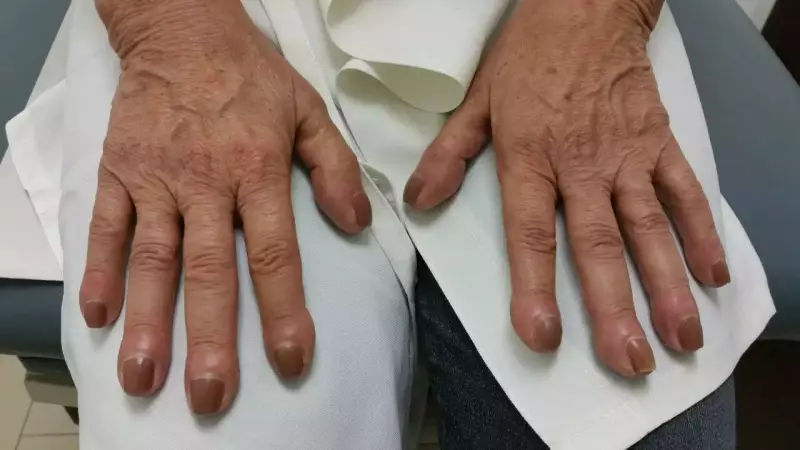
While most people associate lung cancer with persistent coughs and breathing difficulties, doctors are warning about a surprising early indicator that appears not in your chest, but in your fingers. Finger clubbing and other nail changes could be your body's silent alarm for serious underlying health conditions, including lung cancer.
What is Finger Clubbing?
Finger clubbing is a medical condition where the fingertips become enlarged and the nails curve downward, resembling an upside-down spoon. This isn't just a cosmetic change - it's often your body's response to reduced oxygen levels in the blood, which can occur with various lung diseases.
The Tell-Tale Signs to Watch For
- Softened nail beds that feel spongy when pressed
- Increased nail curvature that makes them look like watch crystals
- Loss of the normal angle between your nail and cuticle
- Fingertips that appear enlarged or bulbous
- Warm, red nail beds that might be tender to touch
Why Do These Changes Occur?
Medical experts explain that finger clubbing typically develops when lung diseases reduce oxygen circulation in your bloodstream. Your body responds by forming new blood vessels in your fingertips, leading to the characteristic swelling and changes in nail appearance.
Beyond Lung Cancer: Other Health Conditions Linked to Finger Clubbing
- Heart disease, particularly congenital heart conditions
- Liver disorders including cirrhosis
- Inflammatory bowel disease like Crohn's disease
- Thyroid problems, especially Graves' disease
- Other lung conditions such as bronchiectasis or lung abscesses
When Should You Seek Medical Help?
Doctors emphasize that noticing any of these changes warrants immediate medical consultation. While finger clubbing doesn't automatically mean cancer, it's a significant red flag that requires thorough investigation. Early detection of lung cancer dramatically improves treatment outcomes and survival rates.
Other Lung Cancer Symptoms You Shouldn't Ignore
- Persistent cough that doesn't go away or worsens
- Chest pain that intensifies with deep breathing or coughing
- Shortness of breath during routine activities
- Unexplained weight loss and loss of appetite
- Fatigue that doesn't improve with rest
- Recurrent respiratory infections like bronchitis or pneumonia
Remember: While finger changes alone don't confirm lung cancer, they serve as crucial warning signs that should prompt immediate medical evaluation. Your fingertips might just hold the key to early detection and potentially life-saving intervention.





